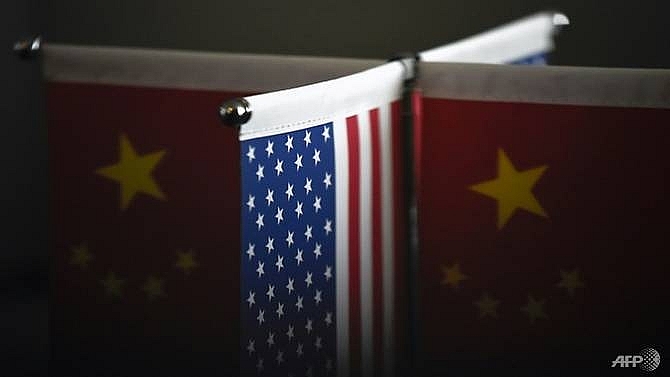WTO eyes China bid to slap stiff trade sanctions on US
 |
| China is pursuing the United States at the World Trade Organization for improperly imposing anti-dumping duties on some of its products AFP/WANG Zhao |
The decision to appoint an arbitrator was reached during a special meeting of the WTO Dispute Settlement Body convened to discuss developments in a five-year-old trade dispute between the world's top two economies.
Beijing had already warned earlier this month that it planned to ask the global trade body during the meeting for permission to impose US$7.04 billion in annual trade sanctions on Washington in the case.
China's representative told Friday's meeting that measures taken by Washington had "seriously infringed China's legitimate economic and trade interests."
A source close to the WTO meanwhile said that the arbitration "was automatically triggered after the United States informed the WTO that it objected to the level of retaliation proposed by China."
WTO arbitration can often be a drawn-out process, and the results are not expected to be known for months.
China initially filed its dispute against the United States back in December 2013, taking issue with the way Washington assesses whether exports have been "dumped" at unfairly low prices onto the US market.
The use of anti-dumping duties are permitted under international trade rules as long as they adhere to strict conditions, and disputes over their use are often brought before the WTO's Dispute Settlement Body.
In this specific case, China alleged that the United States, in violation of WTO rules, was continuing a practice known as "zeroing", which calculates the price of imports compared to the normal value in the United States to determine predatory pricing.
In October 2016, a panel of WTO experts found largely in China's favour in the case, including on the issue of "zeroing".
The United States, which has repeatedly lost cases before the WTO over its calculation method, said in June last year that it would implement the panel's recommendations within a "reasonable" time frame.
This past January, the DSB set an Aug 22 deadline for Washington to bring its practices in line with the 2016 ruling.
According to WTO rules, the plaintiff in such cases can request permission to impose sanctions if the parties have not reached agreement on a satisfactory compensation within 20 days of the WTO deadline.
What the stars mean:
★ Poor ★ ★ Promising ★★★ Good ★★★★ Very good ★★★★★ Exceptional
Related Contents
Latest News
More News
- Russian President congratulates Vietnamese Party leader during phone talks (January 25, 2026 | 09:58)
- Worldwide congratulations underscore confidence in Vietnam’s 14th Party Congress (January 23, 2026 | 09:02)
- Political parties, organisations, int’l friends send congratulations to 14th National Party Congress (January 22, 2026 | 09:33)
- 14th National Party Congress: Japanese media highlight Vietnam’s growth targets (January 21, 2026 | 09:46)
- 14th National Party Congress: Driving force for Vietnam to continue renewal, innovation, breakthroughs (January 21, 2026 | 09:42)
- Vietnam remains spiritual support for progressive forces: Colombian party leader (January 21, 2026 | 08:00)
- Int'l media provides large coverage of 14th National Party Congress's first working day (January 20, 2026 | 09:09)
- Vietnamese firms win top honours at ASEAN Digital Awards (January 16, 2026 | 16:45)
- ASEAN Digital Ministers' Meeting opens in Hanoi (January 15, 2026 | 15:33)
- ASEAN economies move up the global chip value chain (December 09, 2025 | 13:32)

 Tag:
Tag:




















 Mobile Version
Mobile Version